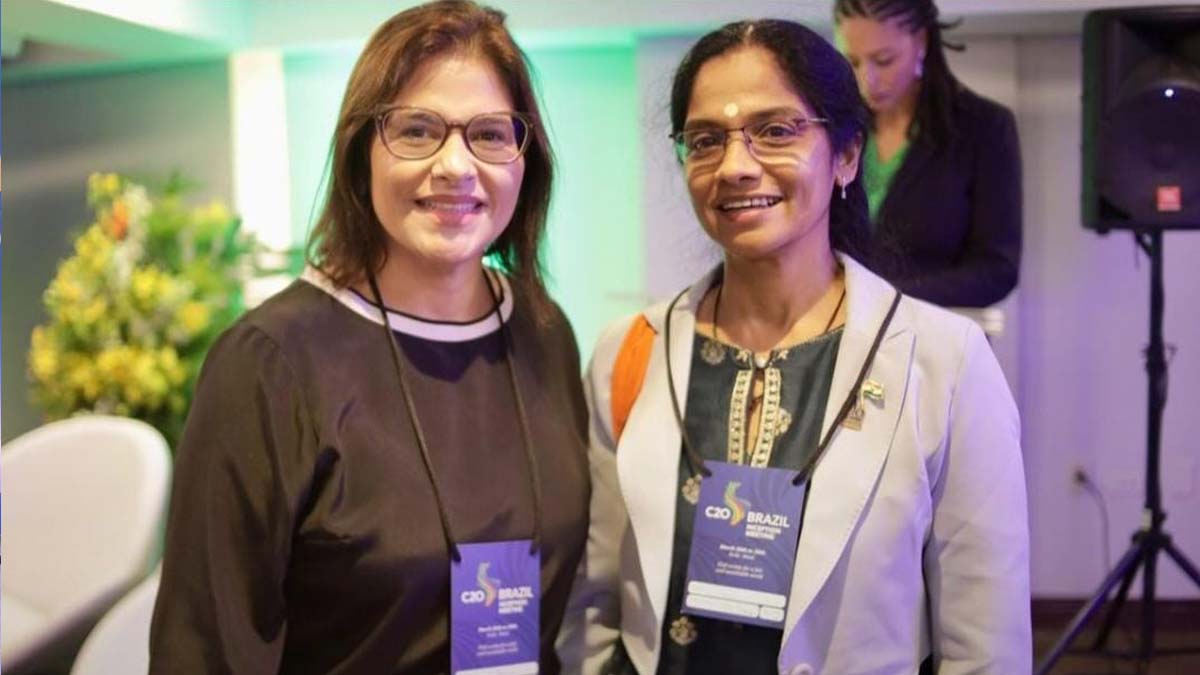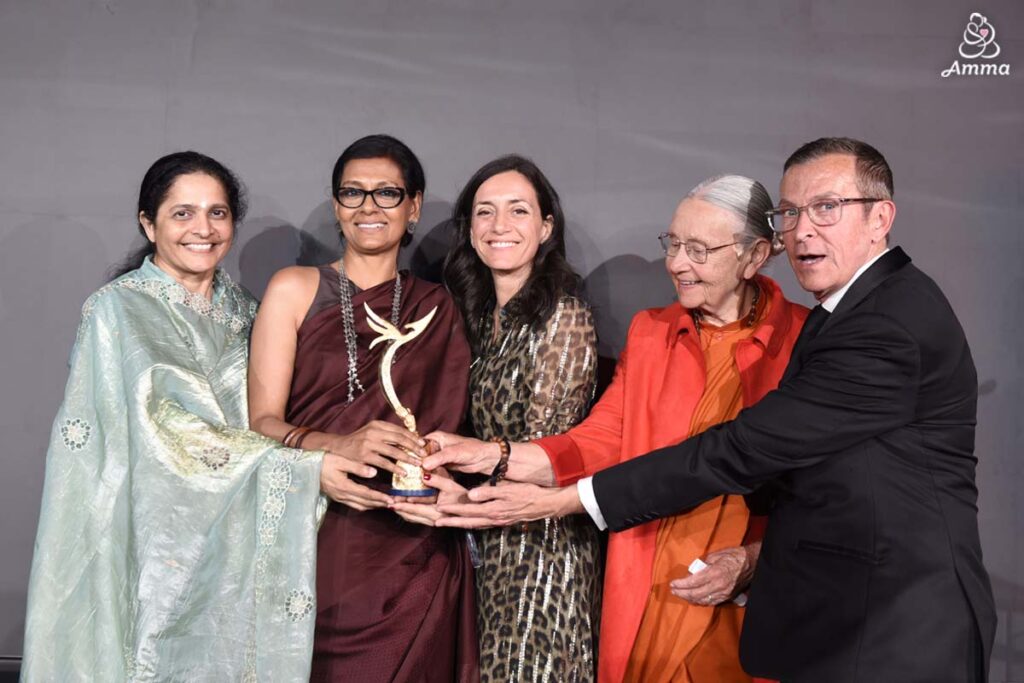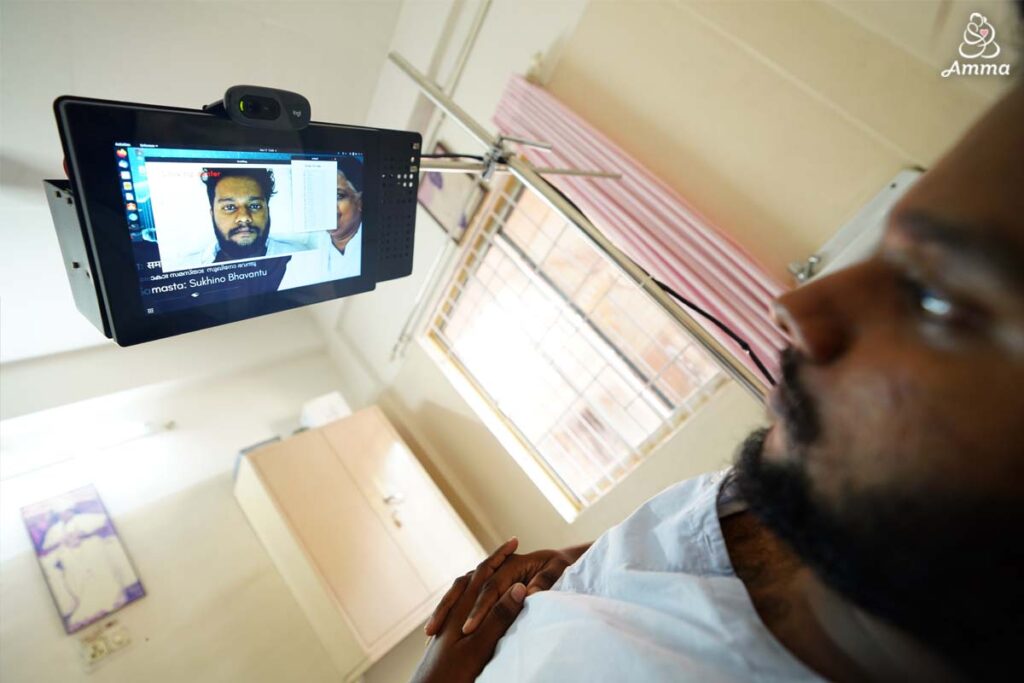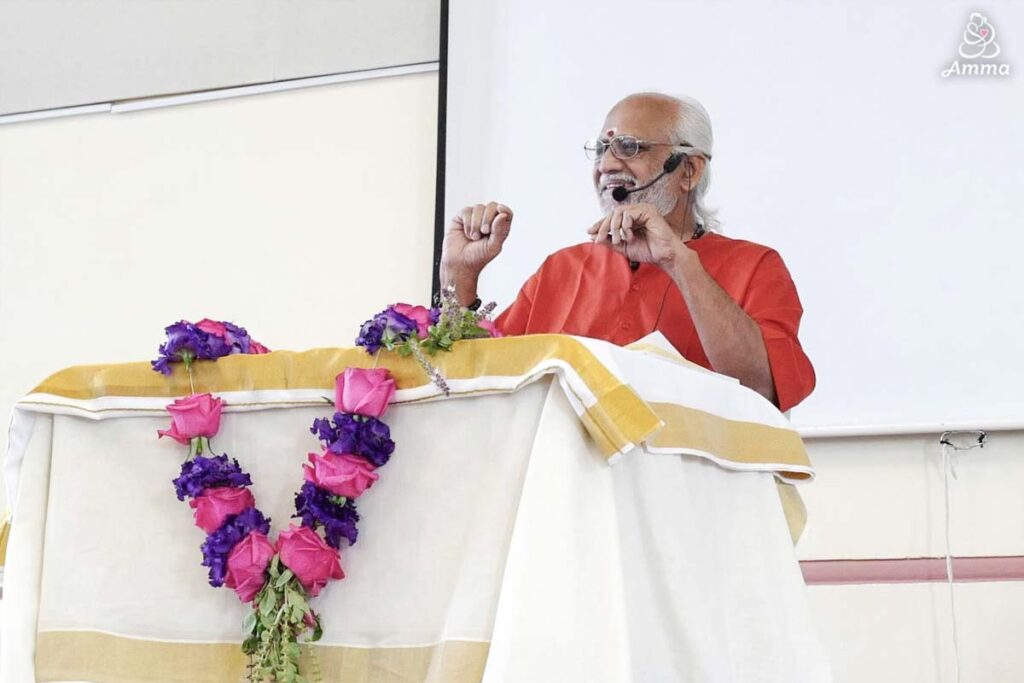As Civil 20 Brazil continues for 2024, the extensive work done by C20 India’s 16 working groups was taken as the starting point. The Inception Meeting was hosted in Recife, Pernambuco between March 26 – 28. Dr Krishnashree Achuthan represented C20 India as part of the International Advisory Council. She is Dean of Post Graduate Studies at Amrita University.
With Amma as the first spiritual leader to chair C20, the C20 India 2023 initiatives included more than 6,000 civil society organisations (CSOs) from 154 countries. Her vision provided many unique and valuable contributions, including a basis rooted in compassion and selfless service which guided the entire C20 India journey.
The Brazil C20 Inception brought together representation from over 2,000 entities from 60 countries both online and offline. It was held under the leadership of Henrique Frota, the C20 Brazil Chair from ABONG and Instituto Pólis, and Alessandra Nilo, the C20 Brazil Sherpa representing GESTOS.
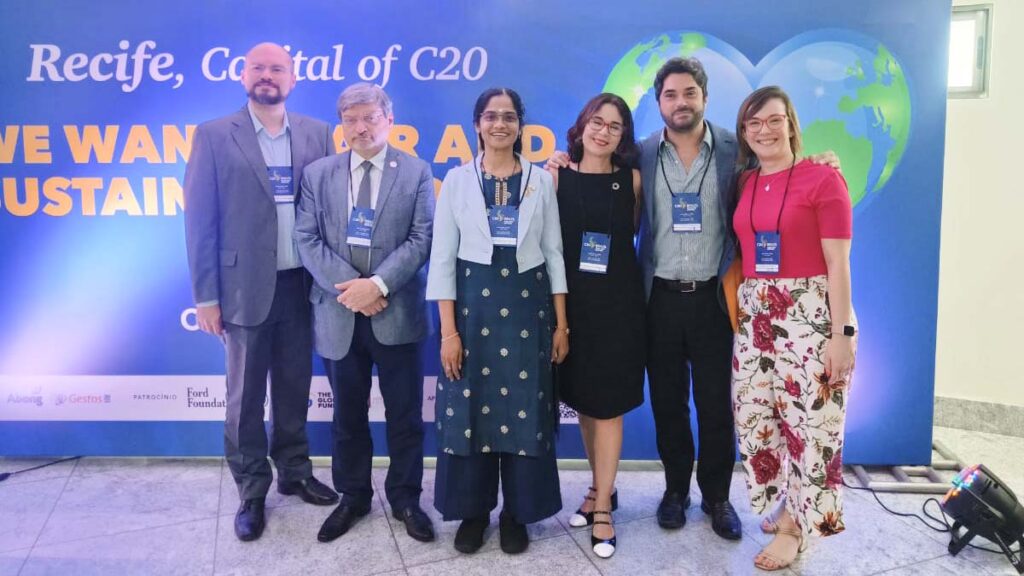
C20 is a G20 Engagement Group that represents the world’s civil society organisations (CSOs) and non-governmental organisations (NGOs). It is their work that undertakes on a first-person basis the needs of the world’s most vulnerable communities and the impact of environmental destruction.
For 2024, it is the Govt of Brazil that leads the G20 Presidency based upon the progress made by the Govt of India during its 2023 Presidency. The G20 is an intergovernmental forum comprising 19 sovereign countries, the European Union (EU), and the African Union (AU). It works to address major issues related to the global economy, such as international financial stability, climate change mitigation and sustainable development.
Dr Achuthan had extensive discussions with Mr Frota and Ms Nilo on further cooperation and support towards the pathway for 2024. Other leaders with Amrita working groups for C20 India also took part online in several discussions and presentations, including Dr Bhavani Rao, Dean, School of Social and Behavioural Sciences; Dr Maneesha Ramesh, Amrita Provost, Research; and Dr Prema Nedungadi, Associate Dean, School of Computing, Amritapuri.
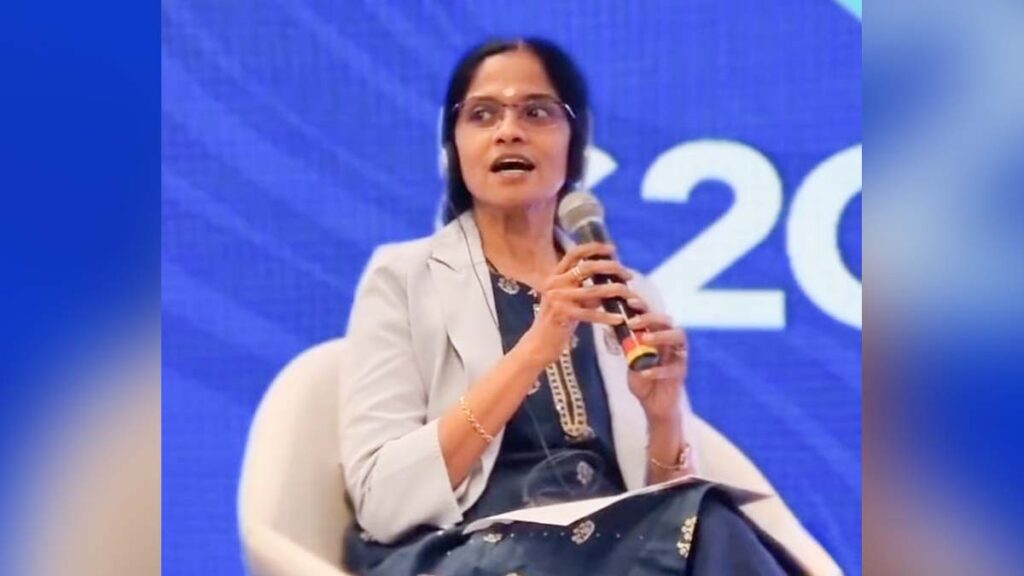
The inaugural event was graced by distinguished participants including Priscila Krause, Vice-Governor of the State of Pernambuco; Gustavo Westmann, Special Advisor on International Affairs of the General Secretariat of the Presidency of the Republic of Brazil; André Aquino, Ministry of Environment and Climate Change; and Claudia Baddini Curralero, from IPEA, Thinktank 20.
Notably, the gathering also featured virtual contributions from Marcio Macedo, the Minister of the General Secretariat of the Presidency of the Republic of Brazil, and Maria João Rodrigues, President of the European Foundation for Progressive Studies and a former Member of the European Parliament. The presence of all these eminent figures underscored the high level of engagement and commitment towards fostering collaborative solutions across various sectors.
Central were the discussions held across ten distinct working groups, each focused on a critical area of global concern. These ranged from advocating for Fair, Inclusive, and Anti-Racist Economies (WG1) to addressing the intricate challenges of Food Systems, Hunger, and Poverty (WG2).
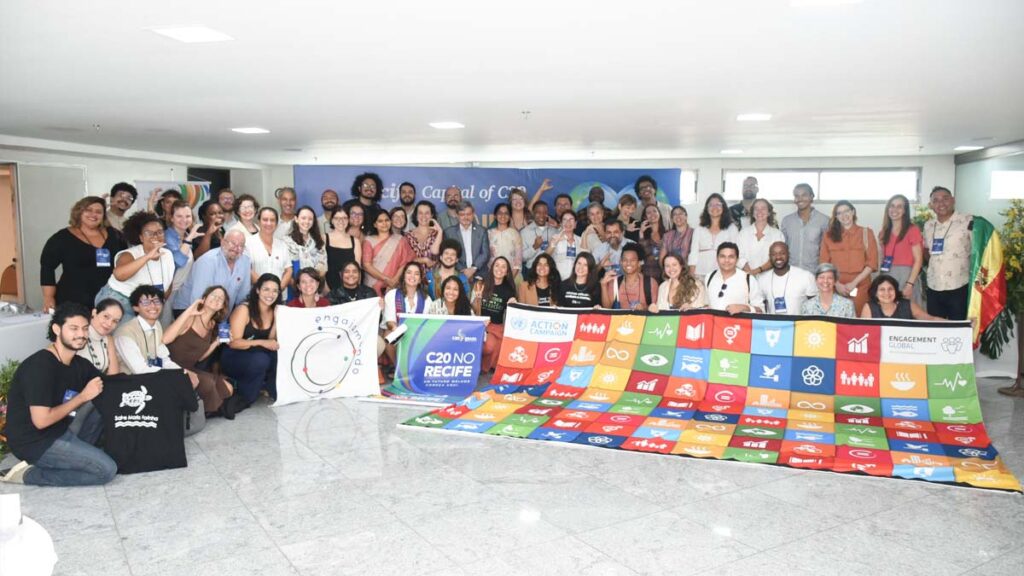
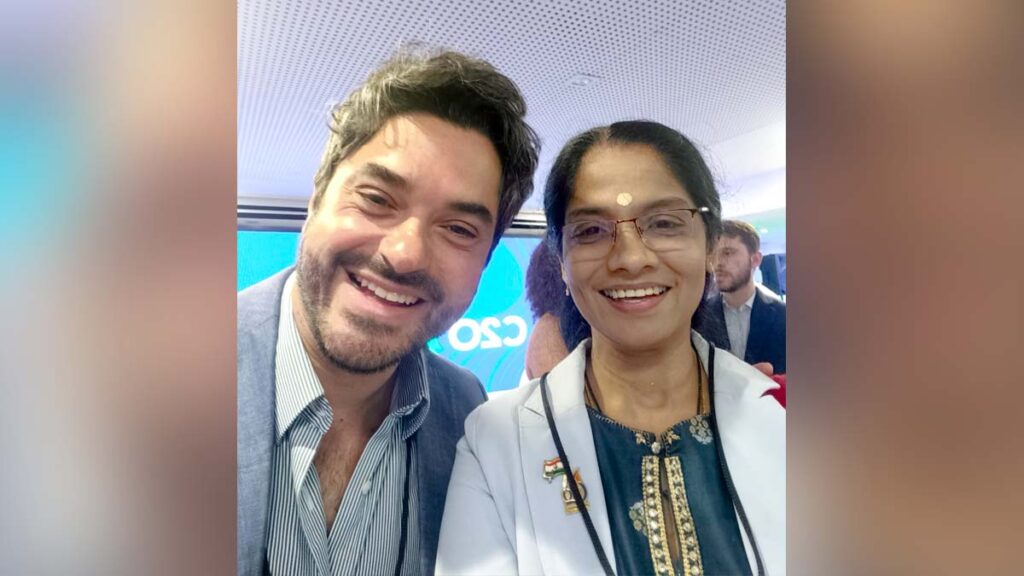
The environmental agenda was strongly represented through the lens of Climate Justice and Just Energy Transition (WG3), while Sustainable and Resilient Communities alongside Disaster Risk Reduction (WG4) highlighted the imperative of community-level resilience in the face of escalating environmental and societal risks.
Healthcare was a focal point with Integrated Health for All (WG5), emphasising the need for inclusive and accessible health systems. Education and Culture (WG6) alongside Digitalisation and Technology (WG7) underscored the critical role of knowledge and technology in shaping a sustainable future.
The discussions also encompassed pivotal issues such as Women’s Rights and Gender Equality (WG8), the role of Philanthropy in Sustainable Development (WG9), and the overarching importance of Democratic Governance, Civic Space, Anti-Corruption, and Access to Justice (WG10) in achieving the Sustainable Development Goals (SDGs).
During C20 India, Amrita University led five of the 16 Working Groups: Technology, Security & Transparency, Sustainable & Resilient Communities, Education & Digital Transformation, Integrated Holistic Health, and Gender Equality & Women’s Empowerment.


